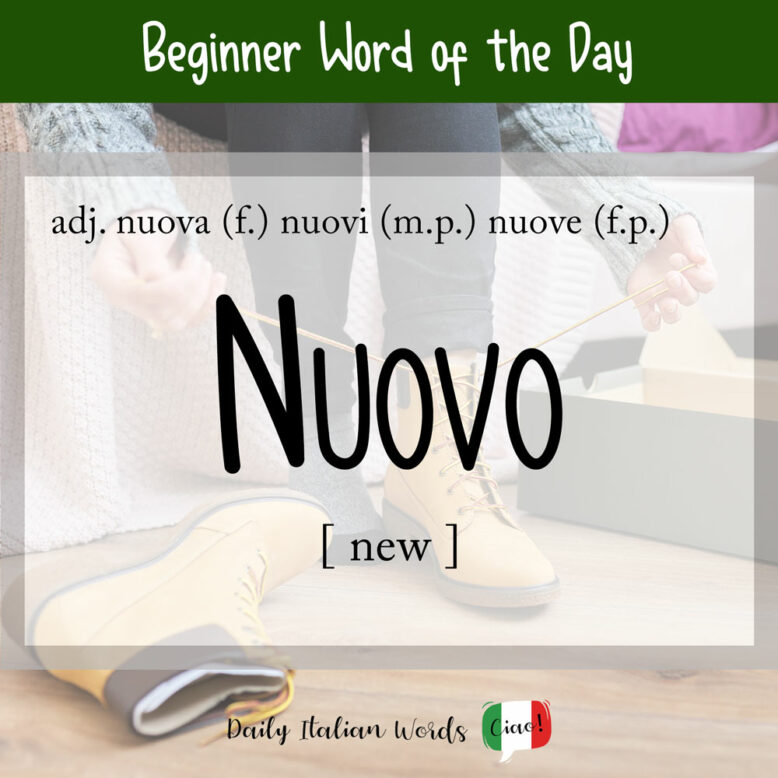The usage of the adjective nuovo (feminine: nuova, plural: nuovi or nuove) in Italian is almost identical to the word new in English.

Just as it can refer to something that didn’t exist before, it can also describe something produced, introduced, or discovered recently or for the first time, or an unused item.
Ho comprato delle scarpe nuove.
I bought some new (unused) shoes.
Le nuove tecnologie trasformeranno la comunicazione.
The new (newly introduced) technologies will transform communication.

Nuovo can also mean additional or another when referring to the expansion of a company or family for example.
A giugno la nostra banca apre una nuova filiale.
In June our bank will open a new (additional) branch.
If you want to say that something is very new, you can either add the adverb molto in front to create molto nuovo or attach the absolute superlative -issimo to the end to make nuovissimo.
One frequently used adverb in Italian is di nuovo. This doesn’t translate as new but rather (once) again or (once) more. It is an alternative to ancora (again).
Oh cavolo, ho perso le chiavi della macchina. – Di nuovo? Ma sei un disastro!
Oh shoot, I lost the car keys. – Again? You’re a disaster!
Somewhat confusingly for learners, you will hear di nuovo instead of nuovo on its own to mean new after indefinite pronouns such as something, someone and somewhere.
Cerca di provare qualcosa di nuovo ogni giorno!
Make an effort to try something new every day!
Serve qualcosa di nuovo in questo quartiere.
We need something new in this neighbourhood.
To say that something is brand new or in mint condition, you can use one of two expressions: nuovo di pacca or nuovo di zecca.
La macchina ha un motore nuovo di zecca.
The car has a brand-new engine.
Used as a noun, the masculine nuovo can mean novelty or something new.
In un mondo in cui tutto cambia radicalmente, il nuovo fa presto a diventare obsoleto.
In a world where everything changes radically, the new soon becomes obsolete.
The feminine noun nuova on the other hand translates as news or tidings.
Ho delle buone nuove da darvi – aspettiamo un bambino!
I have good news for you – we’re expecting a baby!
Hai imparato qualcosa di nuovo oggi? Did you learn something new today? Spero di sì! I hope so! 🙂
Heather Broster is a graduate with honours in linguistics from the University of Western Ontario. She is an aspiring polyglot, proficient in English and Italian, as well as Japanese, Welsh, and French to varying degrees of fluency. Originally from Toronto, Heather has resided in various countries, notably Italy for a period of six years. Her primary focus lies in the fields of language acquisition, education, and bilingual instruction.


